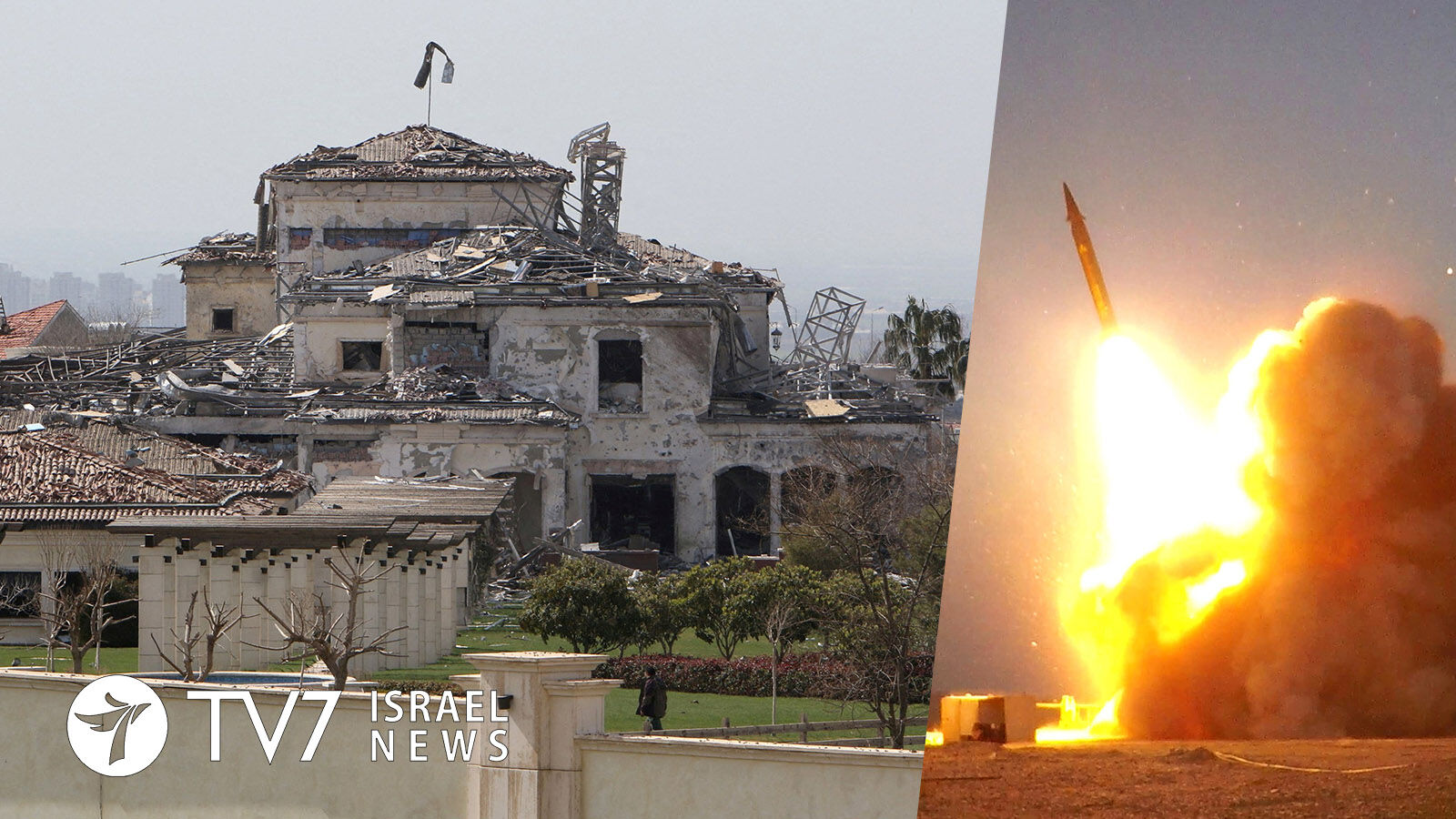In a rare public admission of responsibility, the Islamic Revolutionary Guards Corps (IRGC) announced that it launched a ballistic missile attack in an unprecedented assault on the capital of the autonomous Kurdish region in Iraq.
By Erin Viner
Over a dozen missiles slammed into areas of the northern Iraqi city near a new United States Consulate building on Sunday, according to Kurdish officials, who said that one civilian was hurt but no one killed in the attack.
The IRGC released a statement claiming that it fired “powerful precision missiles” at a “strategic center for conspiracy and mischiefs of the Zionists,” in apparent retaliation for the deaths of two IRGC commanders in an alleged Israeli airstrike near the Syrian capital Damascus last week.
“Once again, we warn the criminal Zionist regime that the repetition of any mischief will face harsh, decisive and destructive responses,” said the statement, adding, “We also assure the great nation of Iran that the security and peace of the Islamic homeland is the red line of the Iranian armed forces and they will not allow anyone to threaten or attack it.”
State Department Spokesperson Ned Price issued a statement stressing that Washington “strongly condemns the missile strikes on Erbil” that “emanated from Iran” in “an outrageous violation of Iraq’s sovereignty.”
Price added that, “No US facilities were damaged or personnel injured, and we have no indications the attack was directed at the United States. Iran must immediately cease its attacks, respect Iraqi sovereignty, and halt its interference in Iraq’s internal affairs. The United States stands with our Iraqi partners, including in the Kurdistan Region, and will help our partners in the region defend themselves.”
The IRGC had vowed to avenge the deaths of officers it identified as Ehsan Karbalaipour and Morteza Saidnejad in “a crime” it alleged had been “committed by the Zionist regime” in airstrikes by unidentified warplanes near Damascus on 7 March. At the time, the Syrian Observatory for Human Rights reported that the attack targeted “a weapons and ammunition depot operated by Iran-backed militias near Damascus International Airport.”
Erbil’s governor was cited by the local Rudaw news agency as quick to dismiss as “baseless” claims by the Tehran-backed Sabereen News Telegram channel, which is linked to Iranian proxies in Iraq, that “two advanced Israeli Mossad training centers” had been targeted on Sunday.
Neither the IDF Spokesperson’s Unit nor the Israeli Prime Minister’s Office issued statements about the Sunday attack on Erbil.
US Secretary of State Antony Blinken spoke yesterday with Iraqi Prime Minister Mustafa al-Kadhimi to condemn the Iranian missile attacks “that violated Iraq’s sovereignty and expressed solidarity with the Iraqi people,” said a statement from his office.
Both leaders “agreed the attack demonstrates the need for Iraqi unity and the urgency of forming a government accountable to the Iraqi people that protects Iraq’s territorial integrity,” said the statement, adding that, “The Secretary conveyed the US commitment to working with the Iraqi government and others in the region to hold Iran accountable.
Insisting that only civilian residential areas and no sites belonging to foreign countries were hit in the IRGC strikes, the Iraqi Kurdish regional government called for an investigation by the international community.
The attack was launched “under the pretext of striking an Israeli base near the US consulate in Erbil, but the target site was a civilian site, and this justification is aimed at concealing the motives of this heinous crime,” said the Kurdistan Regional Council of Ministers in a statement.
“We condemn this terrorist attack launched against several sectors of Erbil and call on the inhabitants to remain calm,” said Kurdistan Prime Minister Masrour Barzani.
Iraq’s Foreign Ministry summoned the Iranian ambassador to Baghdad in protest.
The last time the Islamic Republic fired missiles directly at American facilities was during an attack on the Ain Al Asad air base in western Iraq in January 2020, in retaliation for the US killing of Iranian arch-terrorist Qassem Soleimani. No American personnel were killed in that attack but many suffered head injuries. Since that time Iran-backed Shi’ite Islamist militias have regularly attacked US forces stationed in Iraq and neighboring Syria, for which Washington has occasionally retaliated with air strikes.
Iraq has been rocked by chronic instability since the defeat of the Islamic State terror group in 2017.
The IRGC attack comes amid Iran’s talks with world powers in Vienna to revive the 2015 Joint Comprehensive Plan of Action nuclear deal, which currently faces the prospect of collapse after a last-minute Russian demand forced the West to pause negotiations for an indeterminate time. The French Foreign Ministry warned that Moscow’s demands have threatened efforts to conclude nuclear talks with Tehran.
In yet another indication of derailing regional diplomacy, Tehran announced yesterday that it is suspending the fifth round of talks with arch-for Saudi Arabia that had been slated to be held this week in Baghdad.
